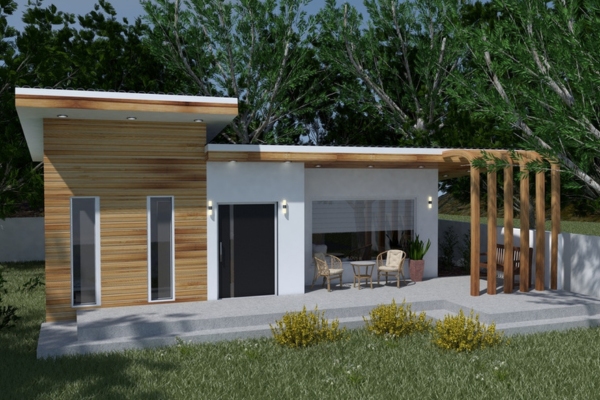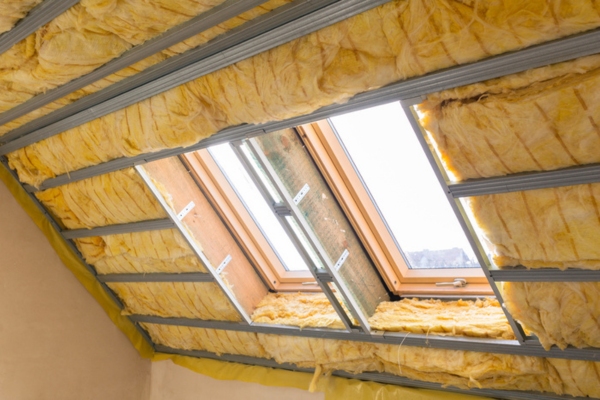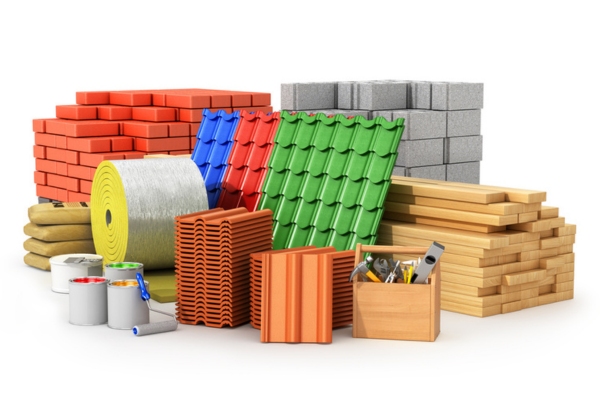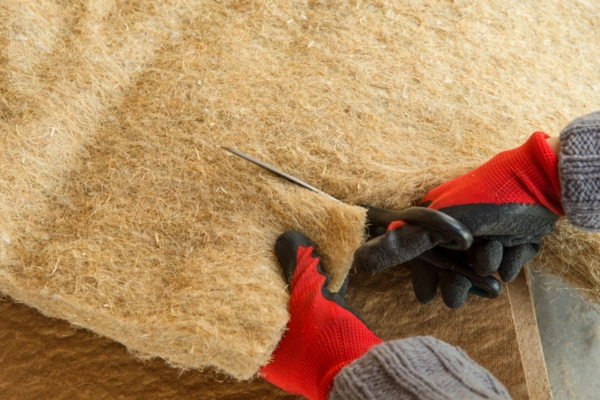Exploring The Role Of Insulation In Tiny Home Living

In modern living solutions, tiny homes have emerged as a profound symbol of minimalism and mobility. They encapsulate the essence of living simply in small, often mobile spaces that rarely exceed 400 square feet. This architectural and lifestyle shift has surged in popularity, driven by a collective desire for economic freedom and a lower environmental footprint.
Central to optimizing these compact living spaces is the strategic use of tiny home insulation, a critical component that bolsters energy efficiency and enhances comfort and sustainability. Experts from Ascend Construction remind homeowners that proper insulation addresses the unique challenges posed by tiny homes.
These challenges include limited spatial volume and surface area, making insulation indispensable for maintaining a habitable and cost-effective environment year-round.
Understanding Insulation
Contents

Insulation plays a pivotal role in construction by serving as thermal insulation. Thermal insulation is designed to maintain a consistent temperature indoors by minimizing heat exchange between a building’s interior and the exterior environment. This is essential not only for energy conservation but also for ensuring a comfortable living space.
Various materials are available for insulation, each suited to different needs and building designs:
- Fiberglass Insulation: Fiberglass insulation is lightweight, non-flammable, and typically available in batts or rolls. It is economical and practical in sound dampening but can irritate the skin and lungs during installation, necessitating the use of protective gear.
- Spray Foam Insulation: This is applied wet and expands into a thick foam that hardens upon drying, filling gaps and providing an excellent air seal. It offers a high insulation value per inch of thickness, making it ideal for maximizing space in tiny homes; however, the installation process involves chemicals and requires professional handling.
- Cellulose Insulation: This is made from recycled paper products and treated for fire and pest resistance. It is blown into spaces or damp-sprayed, providing a tight fit around obstacles and creating an effective air barrier. However, it may settle over time, slightly reducing its insulating effectiveness.
- Reflective Foil Insulation: This consists of layers of aluminum foil that reflect radiant heat rather than absorb it. It is best used with other forms of insulation to maximize heat reflection and is especially suitable for warm climates or in tiny homes where space is at a premium.
Each type of insulation has its specific advantages and considerations, making it crucial to select the right one based on the climatic conditions, the available space for insulation, and personal preferences for materials and installation methods.
Benefits of Insulation in Tiny Homes
Here are several advantages of insulation in tiny homes:
Energy Efficiency
Insulation is vital in tiny homes to reduce heating and cooling expenses by maintaining a consistent internal temperature. This stabilization is especially beneficial in small spaces prone to temperature fluctuations, significantly decreasing overall energy consumption.
Temperature Regulation

Proper insulation helps maintain comfortable indoor temperatures throughout the year. It prevents heat loss during the colder season and reduces heat gain during warmer periods, ensuring a stable and livable environment.
Moisture Control
Essential for moisture management, insulation prevents mold and mildew growth—common issues in compact spaces. It also safeguards the home against moisture-related structural damage, thus maintaining both structural integrity and air quality.
Soundproofing

Insulation serves as a sound barrier in tiny homes, reducing external noise penetration. This is crucial in small spaces and enhances privacy, making it an invaluable feature for compact living.
Explore tailored insulation options that meet your home’s specific requirements. Contact Ascend Construction and book your complimentary consultation today!
Durability and Longevity
Insulation boosts the durability and longevity of tiny homes by supporting structural integrity. The quality of materials and installation has a significant role in the insulation’s lifespan and performance, making careful selection and professional installation essential for maximizing these benefits.
Challenges of Insulating Tiny Homes

Here are several disadvantages that insulating tiny homes have:
- Limited Space for Insulation Installation: Tiny homes face the challenge of limited space for insulation. To address this, innovative design solutions and high-performance materials are used to maximize insulation efficiency without sacrificing living space, ensuring adequate insulation coverage within compact areas.
- Addressing Thermal Bridging: Thermal bridging in tiny homes can undermine energy efficiency by allowing heat to bypass insulation. Effective strategies include implementing continuous insulation layers and thermal break materials to maintain the insulation’s performance and reduce heat loss.
- Ensuring Proper Ventilation: Proper ventilation is essential in tiny homes to balance insulation and indoor air quality. Design challenges are met by integrating passive ventilation strategies or compact mechanical systems that provide fresh air without significant heat loss.
- Cost Considerations: Insulation costs are a significant part of a tiny home’s budget. Long-term savings from effective insulation must be weighed against upfront costs. Ascend Construction offers affordable insulation solutions that meet budgetary and performance needs, tailoring options specifically for tiny homes.
Innovative Insulation Solutions for Tiny Homes
As the tiny home movement grows, so does the need for innovative insulation solutions that address the unique challenges of these compact living spaces.
Space-Saving Insulation Techniques

In tiny homes, optimizing every inch is crucial. Creative insulation methods are key for enhancing thermal performance in limited spaces. This includes using multifunctional furniture, building components that integrate insulation, and designs that utilize insulation in innovative locations like built-in units and double-duty walls.
Enhance your living space with specialized insulation solutions. Reach out to Ascend Construction to arrange your free consultation now!
High-Performance Insulation Materials
Materials like vacuum insulation panels and aerogels, tailored for tiny homes, offer high thermal resistance with minimal thickness, enhancing performance without occupying much space. However, these advanced materials can be costly and complex to install.
Integrated Insulation & Construction Methods

Integrating insulation into the construction process of tiny homes enhances efficiency and streamlines building operations. This approach improves the thermal envelope, reduces thermal bridges, and optimizes space usage by incorporating insulation seamlessly into structural elements.
Smart Tiny Home Insulation Technologies
Smart insulation solutions using IoT technologies are rising in the tiny home industry. These systems adjust insulation properties dynamically based on environmental changes, optimizing energy use and comfort. Notable technologies include adjustable insulation panels and smart windows that modify thermal resistance and transparency in response to external conditions.
Environmental Sustainability & Insulation
Environmental sustainability is not just a trend but a foundational principle in the tiny home movement, especially in insulation practices.
Sustainable Insulation Materials

Eco-friendly insulation options are pivotal in sustainable tiny home construction. Materials such as sheep’s wool, hemp, and recycled denim provide practical thermal barriers and contribute positively to the environmental footprint of building practices. These materials support sustainability by utilizing renewable resources and reducing chemical additives.
Ensure your home achieves maximum comfort. Schedule a no-cost consultation with Ascend Construction and discover your insulation possibilities!
Energy-Efficient Design Principles
Incorporating insulation within passive design strategies is crucial for achieving energy efficiency. Holistic design approaches that optimize natural heat sources and improve thermal mass can significantly enhance energy performance, reducing reliance on mechanical heating and cooling systems and thus lowering energy consumption.
Minimizing Environmental Impact in Tiny Home Construction
Insulation materials with a lower environmental impact are essential in tiny home construction. Sustainable practices include selecting materials with low embodied energy, high recyclability, and minimal off-gassing. This helps reduce the environmental footprint and promotes healthier living environments, echoing the ethos of the tiny home movement.
Conclusion
Insulation is fundamental in tiny home living, enhancing comfort, efficiency, and sustainability. Despite space and cost challenges, innovative solutions and high-performance materials continue to improve its effectiveness. The evolution of insulation technologies promises even greater integration and more intelligent systems, potentially revolutionizing tiny home construction. This progress is expected to solidify further insulation’s role in optimizing these compact living spaces, aligning with broader environmental goals, and pushing the boundaries of what tiny homes can achieve.
Contact Ascend Construction for Trusted Insulation Services in Fort Collins, Colorado
Given the significant variations in quality and cost in the market, select a provider for air sealing and insulation upgrades that combines professional expertise with competitive pricing. Ascend Construction is a leading choice, providing various services such as insulation removal and installation, air sealing, energy conservation measures, energy audits, and whole-house fan installations. Opt for Ascend Construction for unmatched service that meets and exceeds your expectations, establishing a new benchmark for excellence in the industry.
Contact Ascend Construction for a free consultation today. We can provide you with practical solutions to address the problem areas in your Fort Collins home. All of our services are affordable, and our work is guaranteed. Click here to contact us, or click the button below to give Ascend Construction a call. We offer free, no-obligation, in-home consultations.
Ascend Construction
4115 County Road 19
Fort Collins, CO, 80524
(970) 420-5495
Related Articles:
- Fitness-Friendly Insulation: Crafting The Perfect Climate For Your Home Gym
- The Ultimate Guide to Insulating Your She Shed for Year-Round Comfort
- Cool Roofs & Insulation: A Dynamic Duo For Beating The Heat
- How Insulation Enhances Solar Panel Efficiency: A Synergistic Approach to Green Living
- Insulation for Allergen Reduction: Can Your Home Breathe Better?
